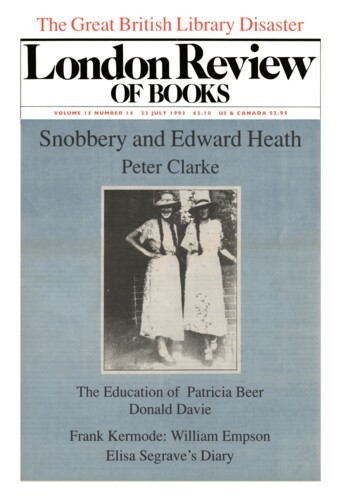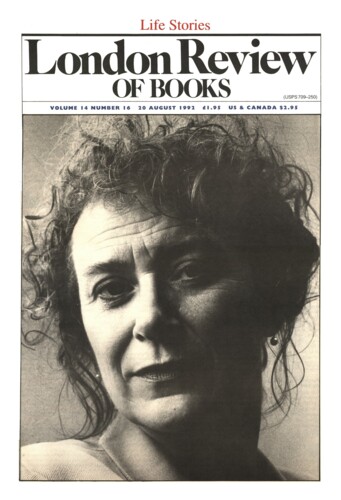Unhappy Man
P.N. Furbank, 22 July 1993
Only a few months after the first, revelatory, biography of Philip Larkin there come two new lives – whether they are ‘revelatory’ will need pondering – of Michel Foucault. It is a suggestive coincidence. The one an exemplar of humanism, the other a grand exponent of anti-humanism, they are about the best in the way of writers their two countries have lately produced, and at their death they seemed to leave as great a hole. Larkin, as a poet of humanistic genius, was actually something quite rare (Whitman is the only parallel who readily springs to mind), and his work reminds us how central the notion of happiness is to humanism. With fantastic rigour, with the clarity of genius, Larkin accepted that, for himself, happiness was out of the question, and his poetry, which celebrates the possibility of happiness, comes to seem even more poignant and magnificent after reading his biography. (How one hated the smugly ‘fair-minded’, ever-so-right-thinking way in which his tragic story was handled by reviewers.)’




